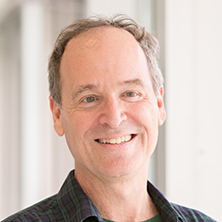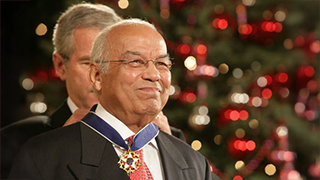“Archaeologist of thought” Robert Mayhew is Reviving Lost Ideas from Aristotle and Other Ancient Scholars - Seton Hall University
Friday, November 11, 2022

Robert Mayhew, Ph.D.
Renowned philosopher Robert Mayhew, Ph.D. admits that, as a researcher, he mostly looks like a nerdy guy buried in books. But his quest to discover, translate and piece together lost works of ancient philosophers has more elements akin to an “Indiana Jones” plotline than first meets the eye.
“I look at my work as an archaeology of thought,” says Mayhew, a professor in Seton Hall’s Department of Philosophy specializing in ancient Greek philosophy — and Aristotle in particular. “When you get in on the ground floor, studying some neglected ancient text or working on a new translation, it’s very exciting.”
Most of the time, Mayhew does his research using modern editions based on Byzantine and medieval manuscripts in collaboration with archivists and classicists around the world who handle and care for original ancient documents. Some precious relics of past thought have also made their way into modern study via fragile scraps of papyrus, densely scrawled with fragments of works by ancient philosophers.
Before discovery by archaeologists, papyrus fragments laid preserved for thousands of years underneath the shifting sands of Egypt or molten mud deposited by the volcanic eruption that destroyed Pompeii. These papyrus remnants and medieval manuscripts are transformed into books of printed Greek text called critical editions, which can then be easily published and shared with scholars around the world. Working with medieval manuscripts and papyrus fragments, Mayhew has created one such critical edition, of a Greek text; Theophrastus: On Winds came out in 2018. He has had the honor of editing and translating Aristotle: Problems for Harvard University Press’s distinguished Loeb Classical Library series.
Some of the writings he is interested in haven’t yet been turned into critical edition texts.
“In a very few cases — such as Aristotle’s lost Homeric Problems — I have examined digital copies of papyrus, though I had to rely on the expertise of papyrologists, as these are very difficult to read,” he says.
As Mayhew digs into translating and analyzing the words of Aristotle and other philosophers, their insights seem to jump from nearly 2400 years ago to the present day.
“There’s been a move in the culture to promote the wisdom of ancient Greek philosophers and ethicists as providing answers to contemporary problems,” Mayhew says. “Stoicism is getting a lot of press, a school of thought that wants people to rein in their desires and their pursuit of values. But I think it’s a pity Aristotelian thought isn’t getting more attention — for Aristotle, it was not about denying desires but about pursuing happiness and achieving a state of human flourishing.” Among many ongoing projects, Mayhew is collecting, translating and writing a commentary on the fragments of Aristotle’s lost Zoïka, or “animal matters,” which contained information about fish, birds and some other animals. “My working hypothesis is that the Zoïka represented what scholars have called the collection of data or notebook stage of biological inquiry,” he says.
Like most scholarly works associated with classical antiquity, Zoïka was lost during the Dark Ages that followed the collapse of the Roman Empire. Although a manuscript has never been found, other authors from long ago have hinted at its existence. To piece it back together, Mayhew is combing through surviving works by other ancient scholars who quoted, referenced, and studied it.
“Most of the fragments are quotations by a second/third century A.D. author named Athenaeus,” he says. “Given the importance of Athenaeus to my project, I also need to do more work on his reliability as a source of fragments.”
Mayhew is one of the world’s leading scholars of Aristotle and a prolific writer: his Zoïka scholarship follows a boom of other works he has authored recently. He was an editor of the 2022 book Clearchus of Soli: Text, Translation, and Discussion, as well as eight articles on Aristotelian philosophy, science, and literary criticism published over the past two years in several journals. His book Aristotle’s Lost Homeric Problems was published in 2019, his third book with Oxford University Press.
But Mayhew is also a major figure in the study of 20th-century novelist-philosopher Ayn Rand, about whom he co-edited a book, Foundations of a Free Society: Reflections on Ayn Rand’s Political Philosophy (2019). In 2014, he edited and published a previously unpublished play Rand had written, The Unconquered. He has been interested in Rand’s work since 1980, when he read her novel Atlas Shrugged and was fascinated by a particular statement she made. “In that novel she claims that the greatest thinker in world history is Aristotle, and everything we have in today’s Western Culture is owed to him,” Mayhew says. “I couldn’t quite believe such a bold statement. What did Rand mean by that?”
At the time, Mayhew was planning to attend graduate school to study political philosophy, focusing on the work of Thomas Hobbes and especially John Locke, whose theories influenced the American Founding Fathers and the formation of the United States. Instead, Rand’s Atlas Shrugged sent him on a journey into Aristotelian thought. “I remember attempting to read Aristotle’s complete works, starting at the beginning with the Categories, and thinking this wasn’t very interesting or inspiring. I wanted to know what Rand had meant … so I kept reading more about Aristotle and ancient Greek culture and was hooked. I switched my focus to ancient Greek philosophy.”
Decades later, Mayhew is still on the lookout to discover new aspects of Aristotle’s works to study. “In addition to teaching undergraduates, I devote a lot of time to research and writing, and I attend a lot of conferences in the U.S. and Europe, collaborating with other scholars,” he says. “Seton Hall’s generous support, and especially its policy on sabbatical leave, has been really helpful for someone who loves doing research and writing as much as I do.”
Categories: Arts and Culture, Research






